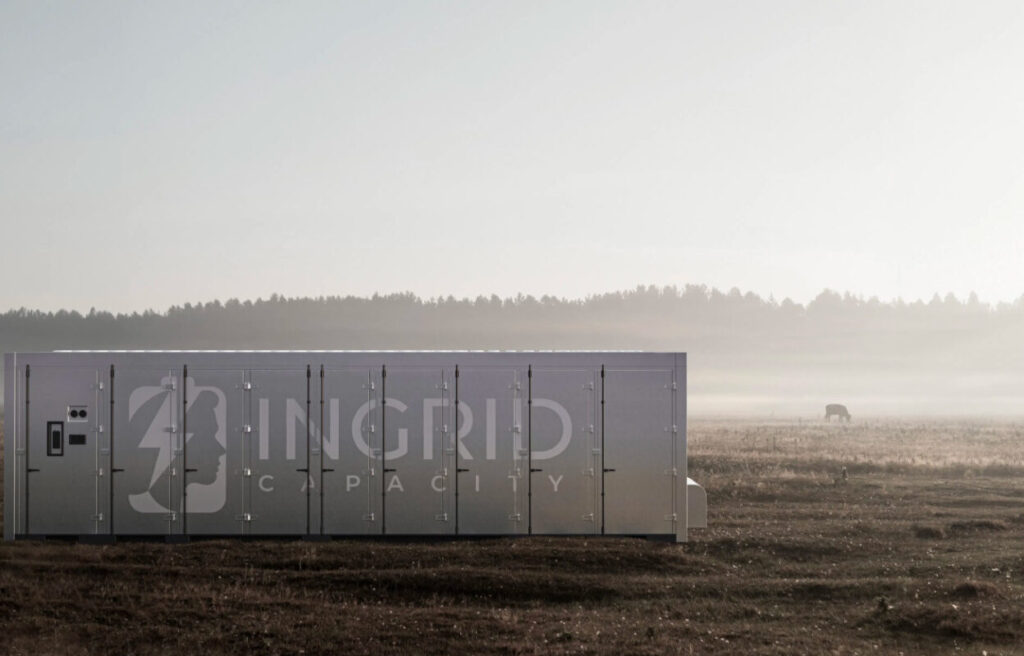
Sweden-based BESS developer Ingrid Capacity will trade its BESS projects as they start to come online, CEO Axel Holmberg said, while also discussing the CEE market and fellow Swede Northvolt’s current challenges in an exclusive ESN Premium interview.
The company is in the midst of commissioning the first projects of a 200MW battery energy storage system (BESS) pipeline in Sweden in partnership with BW ESS, the energy storage owner-operator arm of global maritime company BW Group.
Enjoy 12 months of exclusive analysis
- Regular insight and analysis of the industry’s biggest developments
- In-depth interviews with the industry’s leading figures
- Annual digital subscription to the PV Tech Power journal
- Discounts on Solar Media’s portfolio of events, in-person and virtual
Ingrid’s model has been to sell its developed BESS projects to a long-term owner but retain a minority stake, and the next phase of that model is to optimise those projects’ energy market activity once operational with its own proprietary trading platform, as Holmberg explained.
“Our plan has been to optimise our own assets and we’ve now moved that plan from the product development stage to an operational cloud-based trading software,” he said.
“It’s been a lot of heavy lifting by the team to get that product operational and it’s been extremely important to stay in touch with what is happening in the market to get there.”
“We have considered optimising third-party assets but for now we will focus our own. The best way of being successful in optimisation is having skin in the game and putting our own capital into holding sizable stakes in our projects.”
Having that ‘skin in the game’ was cited by BW ESS CEO Erik Strømsø as the best kind of due diligence an investor could do on a developer when discussing the partnership with Ingrid in an interview with Energy-Storage.news in May this year.
Alongside the deal with BW ESS, Ingrid Capacity has a similarly sized portfolio partnership with investor SEB Nordic Energy, with those BESS projects set to come online over the next 12 months with construction to commence before the end of the year.
Interestingly, the decision to both own and optimise a BESS project was also taken by another major player in the Swedish energy storage market, but that example was the reverse of Ingrid. Optimiser Flower has recently moved into owning its own grid-scale BESS projects, with two 40MW acquisitions in April and September, aiming to prove its long-term optimisation model.
CEE market: market entrants need to be ‘forward leaning’
Ingrid is also eyeing up opportunities in the Central and Eastern Europe (CEE) market, with Romania described by Holmberg as ‘interesting’: “We’re building partnerships and pipeline in different CEE markets to be ready when we see the business case is there.”
He was speaking to Energy-Storage.news at our publisher Solar Media’s Energy Storage Summit CEE 2024, in late September.
“I’d say right now in CEE people are mostly thinking about the business model and how to tackle the challenges,” Holmberg said.
“Interconnection point and capacity and making your business model work are the main focus I’d say. Tenders, capacity markets are helping but wont bring it over the hurdle alone, to do that you’ll need to evaluate an arbitrage case and to be forward leaning.”
Northvolt ‘will get through this dip’
The company hasn’t disclosed which BESS suppliers it is using for its Sweden projects, but on the broader topic of supply chain and project procurement Holmberg said: “There are challenges on the quality side and supply chain side, we work with both Asian and European suppliers. Optionality is key.”
The chat then moved on to discussing the challenges that Ingrid’s upstream Swedish compatriot Northvolt is facing in its efforts to build up a battery manufacturing ecosystem in Sweden and beyond, which we reported on recently.
Northvolt had been attempting to build dedicated facilities for cell production, cathode production, recycling, BESS assembly, but now looks willing to divest all but its cell production activities due to a ‘challenging macroeconomic environment’.
European BESS developers Energy-Storage.news have been willing to say in private that the downstream energy storage market does not necessarily need an onshored or domestic supply chain to thrive. However, Holmberg was unequivocally supportive of Northvolt’s long-term goals.
“I think building up a local supply chain (in Europe) is absolutely necessary but it won’t be easy to compete with Chinese manufacturers. I’m sure Northvolt will get through this dip, they still have a lot of supply agreements. It is a struggling industry in Europe right now, EV demand is growing slower than what we hoped for and expected, but it’s still crucial to build supply chains here,” he said.

